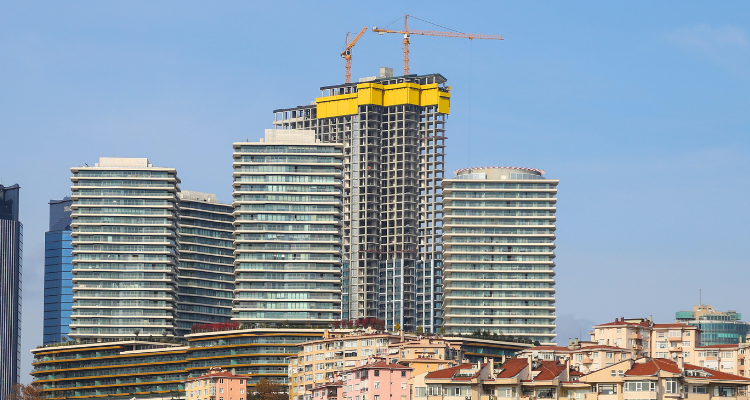For Russians and Iranians, sanctions and growing fear of instability were push factors. Meanwhile, the Turkish government’s deliberate courting of the fleeing capital pulled investors to Istanbul, Antalya, and Ankara. The physical proximity of Türkiye to Russia and Iran make its cities attractive destinations. More importantly, the Turkish government is under no threat of being sanctioned and Turkish banks continue to be connected to SWIFT and other international banking systems.
While Russian and Iranian companies have established operations in Türkiye, the country is also a destination for individuals seeking to avoid economic isolation and instability in their home countries. Türkiye advertises citizenship to foreigners if they invest over four hundred thousand dollars in Turkish property. For wealthier Russians and Iranians, this offers a pathway to a new passport. The only condition for gaining Turkish citizenship is to maintain the requisite investment for at least three years and to confirm the investment with the land registry.
But acquiring Turkish citizenship does not appear to be the main goal of Russian and Iranian investors. The passport policy implemented five years ago has not led to a significant rise in foreign investors receiving Turkish citizenships. Of the tens of thousands that have bought Turkish property, less than five percent gained Turkish citizenship. While Iranians have made up a large percentage of those who receive investment-based passports, more Iranians bought property in August 2018 more than those who received a passport that year.
The fact that passports make such a small proportion of total foreign buyers—particularly those from sanctioned countries—raises additional questions. It is unclear whether those who have qualified for citizenship based on their investment of at least $400,000, fail to do so because of a lack of knowledge, indifference, or the bureaucratic slog. But clearly, Russian and Iranian buyers are more interested in acquiring an asset in a safe market than they are in becoming Turkish citizens.
Foreign purchases of residential properties have spiked in recent years, particularly in Istanbul, but also in other major cities of Türkiye, such as Antalya and Ankara. In Istanbul, Russians buyers have concentrated in Beylikdüzü, Kadıköy, Bağcılar, and Sarıyer districts. Iranians have focused on Esenyurt, Kağıthane, Sarıyer, Kartal, and Maltepe.
The market share of foreign buyers in Istanbul’s residential property market has nearly tripled in just five years, rising from 3.43 percent in 2017 to 9.61 percent in 2022. But these purchases remain a small share of Türkiye’s overall residential market. Last year, purchases of Istanbul property accounted for less than 2 percent of all residential property sales in Türkiye.


